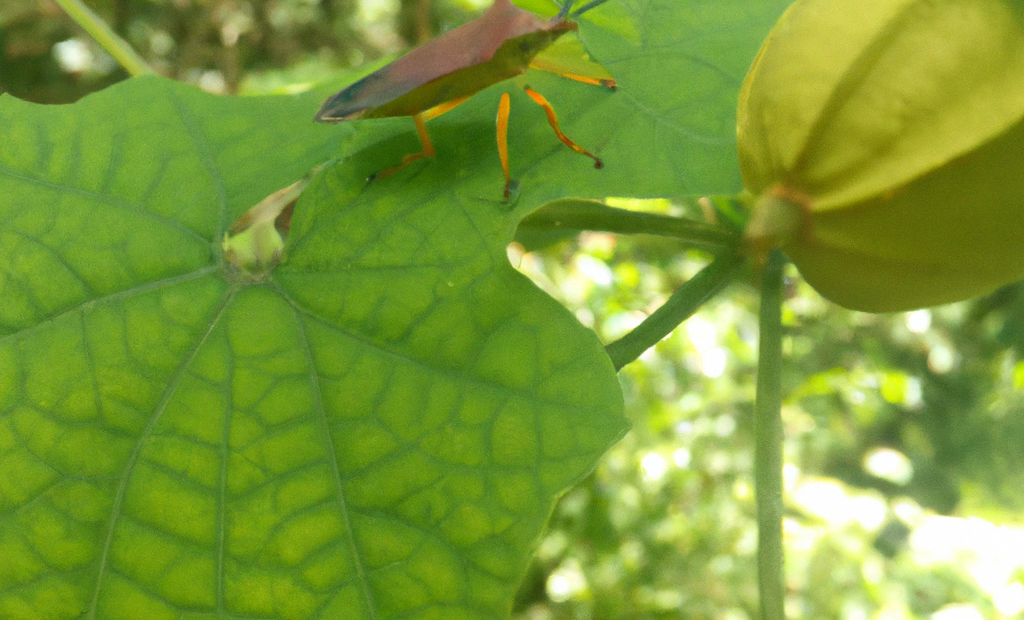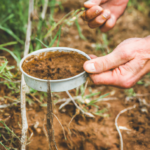The sections highlight the importance of plant clumps and biofertilizers in organic farming to attract beneficial insects, improve soil health, and increase productivity. They promote biodiversity, reduce dependence on pesticides and chemical fertilizers, and promote more sustainable and environmentally friendly agriculture. The use of natural and ecological agricultural products is recommended.
The ecological balance of the agricultural environment is vital for the sustainability and productivity of crops. An essential component of this balance are beneficial insects that, through their activity, contribute to pollination, pest control and improved soil health. Among the strategies to attract and maintain these natural allies are plant clusters. This article focuses on the use of plant clusters to attract beneficial insects, providing a comprehensive vision that ranges from the importance of this strategy in organic agriculture, to how fertilizers and biofertilizers can be used in its implementation. Likewise, the agricultural products available on the market that facilitate the creation of these clusters of plants will be explored. Throughout this article, we will delve into the relevance of plant clusters as an efficient and ecological solution to promote a healthy and productive agricultural environment.
- 1. "The Importance of Plant Clusters in Organic Agriculture"
- 2. "How to Attract Beneficial Insects with Clusters of Plants and Biofertilizers"
- 3. "The Use of Fertilizers in Creating Plant Clusters for Beneficial Insects"
- 4. "Agricultural Products: Clusters of Plants as a Strategy to Attract Beneficial Insects"
1. "The Importance of Plant Clusters in Organic Agriculture"
Plant clusters play a crucial role in organic farming, transforming biodiversity and soil health through their interaction with beneficial insects. Instead of depending on chemical fertilizers, organic farming relies on the use of biofertilizers, which are provided naturally by these insects that are attracted to clumps of plants. Agricultural products that promote the formation of these clusters of plants can increase the presence of beneficial insects, reducing the need for pesticides and improving soil quality and productivity. In short, plant clusters are becoming a vital tool for organic farmers in their quest to maintain a natural and sustainable balance in their crops.
2. "How to Attract Beneficial Insects with Clusters of Plants and Biofertilizers"
The use of clumps of plants and biofertilizers is an effective strategy to attract beneficial insects and strengthen our organic agriculture. Biofertilizers, which are a green alternative to chemical fertilizers, help improve soil health and plant productivity, thereby creating an attractive environment for beneficial insects such as bees, ladybugs and praying mantises. These insects play a vital role in pollination and pest control, which is essential for healthy plant growth. Clusters of plants, on the other hand, provide shelter and food to these insects, encouraging them to stay in our garden or field. By integrating these methods into our agricultural products, we can farm more sustainably and productively, strengthening our commitment to organic farming.
3. "The Use of Fertilizers in Creating Plant Clusters for Beneficial Insects"
The use of fertilizers plays a primary role in organic farming, especially when creating clumps of plants to attract beneficial insects. Opting for biofertilizers is a more sustainable and healthy decision, since they are agricultural products that not only nourish plants and improve soil quality, but can also attract a variety of beneficial insects. These insects are essential for pollination, pest control and decomposition of organic matter, contributing to a balanced garden ecosystem. Therefore, when choosing fertilizers, it is advisable to opt for natural and ecological alternatives, which help promote biodiversity while keeping our plants healthy.
4. "Agricultural Products: Clusters of Plants as a Strategy to Attract Beneficial Insects"
The strategy of using plant clumps to attract beneficial insects is a vital component of organic farming. This effective practice helps reduce dependence on chemical fertilizers and encourages the use of biofertilizers, which are a more sustainable and environmentally friendly alternative. Plant clumps act as a magnet for insects that are beneficial to plant growth and health, such as pollinating bees and predatory insects that control pests. This is one of the many reasons why agricultural products are evolving towards more ecological and sustainable solutions. By adopting strategies such as using clumps, farmers can improve soil health, increase biodiversity, and contribute to a more balanced and productive agricultural ecosystem.
The use of plant clumps in organic farming has proven to be an effective strategy to attract beneficial insects. These insects are essential for biological pest control and pollination, which contributes to greater productivity and the general health of the agricultural ecosystem. Biofertilizers and other agricultural products play a crucial role in creating these plant clumps, providing the nutrients necessary for healthy plant growth and encouraging insect diversity. Additionally, the use of fertilizers in creating these plant clusters further optimizes the attraction of these insects. In conclusion, plant clumps, combined with the appropriate use of biofertilizers and fertilizers, represent a viable and effective organic farming strategy to promote biodiversity and sustainability.


